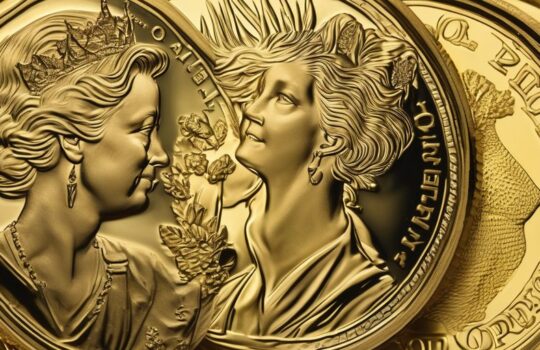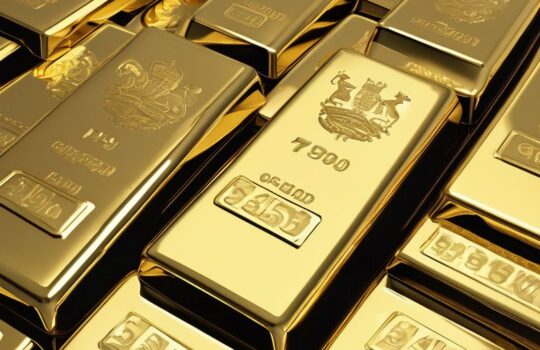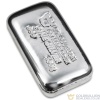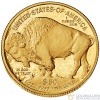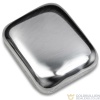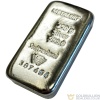How to Successfully Sell Your Silver Bars: Tips and Strategies

Selling silver bars can be a lucrative venture if done correctly. This article offers a comprehensive guide on how to successfully sell your silver bars, with a focus on ensuring you get a fair price and choose the best selling platform. From understanding the value of your silver to managing your finances after the sale, we cover all the essential steps and considerations to maximize your profits and minimize any risks.
Key Takeaways
- Understand the value of your silver bars by assessing their purity, weight, brand, and mint, along with obtaining proper documentation and authentication.
- Prepare your silver bars for sale by cleaning them, presenting them attractively, gathering necessary documentation, and setting a realistic price based on current market conditions.
- Choose the right selling platform by comparing online marketplaces, considering the pros and cons of pawn shops and coin dealers, and utilizing professional vault storage for secure transactions.
- Navigate the sales process with an understanding of taxes, legal considerations, and secure payment methods, while being prepared to negotiate with buyers effectively.
- After the sale, manage your finances by investing the proceeds wisely, maintaining records for future transactions, and keeping an eye on the market for future selling opportunities.
Understanding the Value of Your Silver Bars
Assessing the Purity and Weight
The first step in selling your silver bars is to accurately assess their purity and weight, as these factors are critical in determining their market value. The purity of silver is typically measured in millesimal fineness, which indicates the parts per thousand of pure metal in the alloy by mass. For instance, a fineness of 999 means that the silver is 99.9% pure.
When it comes to weight, silver is commonly traded in troy ounces. A troy ounce is heavier than a standard ounce, with one troy ounce equaling approximately 31.1035 grams. Below is a table outlining various product types and their corresponding metal weights:
| Product Type | Metal Weight (troy oz) |
|---|---|
| Bar | 1, 10, 100, 1000 |
| Bar/Round | 0.5, 0.25, 0.1 |
| Coin | 0.1867, 0.2354, 0.2419 |
It is essential to use precise scales calibrated for measuring precious metals to ensure an accurate assessment of your silver bars’ weight.
Remember that the weight and purity will directly influence the offers you receive from potential buyers. Therefore, it is advisable to verify these details with a reputable dealer or by using certified measuring instruments.
The Impact of Brand and Mint on Resale Value
The brand and mint of origin play a crucial role in determining the resale value of silver bars. Bullion bars from reputable mints and refineries command higher prices due to their recognized quality and authenticity. These bars often bear a mint seal and may include a serial number, enhancing their trustworthiness in the market.
When considering the sale of your silver bars, it’s important to recognize that bars with a higher initial premium are likely to retain or increase their value over time. This is particularly true for bars stored in professional vaults, as they are less likely to be damaged and typically remain in mint condition.
The choice of brand and mint should not be overlooked, as it significantly influences the ease of resale and potential returns.
Here is a list of factors that affect the resale value due to brand and mint:
- Recognition of the mint or brand
- Presence of a mint seal
- Inclusion of a serial number
- The bar’s condition and storage history
- Market demand for the specific brand or mint at the time of sale
Documentation and Authentication
Proper documentation and authentication are critical when selling silver bars, as they significantly enhance the trust and confidence of potential buyers. Ensure that you have all the necessary paperwork, which typically includes certificates of authenticity, purchase receipts, and any grading reports. These documents attest to the legitimacy of your silver bars and can impact the final sale price.
To facilitate a smoother transaction, consider the following checklist:
- Certificate of Authenticity (CoA)
- Original purchase receipts
- Grading reports from recognized agencies
- Detailed inventory list of your silver bars
Remember, the absence of proper documentation can lead to skepticism and lower offers from buyers. > It is advisable to have your silver bars authenticated by a reputable third party if the original documentation is missing or incomplete. This small investment can make a significant difference in the perceived value of your silver bars and the success of your sale.
Preparing Your Silver Bars for Sale

Cleaning and Presentation
Before presenting your silver bars for sale, it’s crucial to ensure they are in the best possible condition. Cleaning your silver bars can significantly enhance their appeal to potential buyers. However, it’s important to clean them properly to avoid damaging the metal. Use a soft cloth and gentle cleaning agents specifically designed for silver. Avoid abrasive materials that can scratch the surface or reduce the luster of your bars.
When it comes to presentation, the way you showcase your silver bars can impact the buyer’s perception of value. A well-presented set of bars, complete with all necessary documentation, can command a higher price. Here’s a simple checklist for presentation:
- Ensure bars are free of fingerprints and dust
- Display bars in a clean, organized manner
- Provide clear and accessible documentation
Remember, first impressions matter. A buyer’s initial reaction to the condition and presentation of your silver bars can influence their willingness to pay a premium. To maximize profit from selling silver bars, consider not only the cleanliness and presentation but also the timing of the market and the security of your storage option. By aligning these factors, you can position yourself for a more successful and profitable sale.
Gathering Necessary Documentation
Before presenting your silver bars to potential buyers, it’s crucial to compile all relevant documentation. This not only aids in proving authenticity but also can significantly enhance the value of your silver bars. Proper documentation includes original purchase receipts, certificates of authenticity, and any appraisals or assessments you have obtained over time.
When organizing your documents, consider the following list to ensure nothing is overlooked:
- Original purchase receipts or invoices
- Certificates of authenticity
- Grading reports, if applicable
- Appraisals from certified professionals
- Storage records
It’s also advisable to research reputable buyers and compare buyback prices, taking into account shipping costs and the current spot price of silver. A well-documented collection is more appealing to buyers and is likely to fetch a better price. Remember, shops and private buyers alike prefer items that are ready for resale and can be easily authenticated.
Setting a Realistic Price
Setting a realistic price for your silver bars is crucial to attract serious buyers and ensure a fair transaction. Research current market prices to understand the going rate for silver bars similar to yours in terms of purity, weight, and brand. Online marketplaces and financial publications can provide up-to-date pricing information.
Consider the following factors when pricing your silver bars:
- The current spot price of silver
- Premiums for brand and mint reputation
- Your bar’s condition and any historical value
It’s important to balance your desire for a high return with the attractiveness of the price to potential buyers. A price too high above the market rate can deter interest, while setting it too low may result in a loss.
Remember that the silver market is volatile, and prices can fluctuate. Keep an eye on market trends and be prepared to adjust your price accordingly. A well-priced silver bar will not only sell faster but will also maintain the integrity of the market.
Choosing the Right Selling Platform

Comparing Online Marketplaces
When considering the sale of your silver bars online, it’s crucial to understand the nuances of each platform. Online marketplaces offer the convenience of reaching a broad audience, but they also come with higher competition among sellers. It’s important to consider the reputation and reliability of the platform, as well as the level of customer service they provide.
While local dealers might offer more personalized service, online marketplaces can facilitate transactions with a wider range of potential buyers, including private collectors who may be willing to pay a premium for your silver bars.
Before listing your silver bars, research the current spot price of silver and compare it with the buyback prices offered by various dealers. This will help you set a competitive yet fair price. Remember to account for any shipping costs that may reduce your net proceeds. Here’s a quick checklist to prepare your silver bars for online sale:
- Clean your silver bars to enhance their appeal.
- Gather all necessary documentation to prove authenticity.
- Note the current spot price of silver for pricing reference.
- Compare buyback prices from different dealers.
- Choose a reputable online marketplace with a track record of secure transactions.
Pros and Cons of Pawn Shops and Coin Dealers
When considering selling your silver bars to pawn shops or coin dealers, it’s essential to weigh the advantages and disadvantages of each option. Pawn shops can provide immediate cash and convenience, especially if you’re looking for a quick sale. However, they often offer lower returns compared to other selling avenues. Coin dealers may offer more competitive prices, but it’s crucial to verify their reputation and ensure they are reputable.
- Pawn Shops:
- Immediate cash
- Convenient for quick sales
- Typically lower returns
- Coin Dealers:
- Potentially better prices
- Requires verification of reputation
- May provide expert evaluations
Remember, the safety of your transaction is paramount. Selling in person may expose you to risks such as burglary or assault, especially if carrying large amounts. Always prioritize security and privacy in your transactions.
Before visiting a pawn shop, arm yourself with knowledge of the current spot price of silver and consider the buyback prices of other dealers, minus any potential shipping costs. Clean your silver bars and have any original purchase documentation on hand to potentially secure a better offer. With coin dealers, ensure that they can authenticate your silver and provide a fair assessment of its value.
Utilizing Professional Vault Storage for Transactions
When considering the sale of silver bars, utilizing professional vault storage can offer a multitude of benefits. These facilities provide secure storage options that ensure the safety of your investment. With features like insurance and advanced security measures, the risk of theft or damage is significantly minimized.
Professional vault storage services often come with the convenience of integrated sell-back programs. This means that when you decide to sell, the process can be as simple as logging into your account, locking in a sale price, and initiating the transaction. The proceeds from the sale are typically disbursed swiftly, often within a few business days, via check or bank wire transfer after the shipment’s verification.
- Secure storage reduces the risk of burglary and theft.
- Fully insured bullion provides peace of mind.
- Seamless sell-back options allow for 24/7 price locking and sales initiation.
- Competitive market pricing ensures fair buyback values.
The strategic use of vault storage not only protects your silver bars but also streamlines the selling process, offering a hassle-free experience from storage to sale.
Navigating the Sales Process

Understanding Taxes and Legal Considerations
When selling silver bars, it’s crucial to be aware of the tax implications and legal requirements that may affect the transaction. State sales tax laws vary, and it’s important to research the rules applicable to the state where the transaction is shipped, not necessarily your home state. A reliable source for this information is the APMEX website, which provides details on state-specific tax laws for precious metals.
In addition to state taxes, there may be federal tax considerations, such as capital gains tax, if your silver has appreciated in value since purchase. It’s advisable to consult with a tax professional to understand your obligations and to ensure compliance with all tax laws.
Remember, proper documentation and understanding of tax laws are essential to avoid potential legal issues and to maximize your financial outcome.
Lastly, be mindful of the legal aspects of selling silver bars. This includes verifying the buyer’s credentials, ensuring the purity of the silver through tests such as the magnet test, and choosing reputable brokers. These steps will help safeguard the transaction and protect your interests.
Negotiating with Buyers
When entering negotiations with potential buyers, it is crucial to be well-informed and prepared. Understanding the current market value of silver and the specifics of your bars will give you a strong foundation for negotiation. It’s important to communicate clearly and confidently, presenting your silver bars as a valuable and desirable commodity.
- Establish the minimum price you are willing to accept based on the spot price of silver and any additional value your bars may have.
- Be open to discussion, but also be firm on your bottom line to ensure a fair transaction.
- Consider the timing of your sale and the buyer’s urgency, as these can influence the negotiation dynamics.
In the negotiation process, patience is a virtue. Rushing to close a deal can lead to accepting a lower offer than what your silver bars may be worth. Take the time to consider each offer carefully and don’t be afraid to counteroffer if you believe the value is not being met.
Ensuring Secure Payment
When selling silver bars, ensuring secure payment is paramount to a successful transaction. It is essential to verify the buyer’s credentials and choose a payment method that guarantees security and traceability. Consider the following steps to safeguard your financial interests:
- Use reputable online payment systems that offer buyer and seller protection.
- Opt for bank transfers or certified checks from recognized financial institutions.
- Avoid cash deals, especially with unknown buyers, to reduce the risk of counterfeit currency.
By meticulously verifying payment methods and buyer legitimacy, you can minimize the risk of fraud and ensure that the sale of your silver bars concludes with financial security.
Remember to keep a record of all transaction details, including the payment method, date, and any correspondence with the buyer. This documentation will be invaluable in the unlikely event of a dispute or for future reference.
After the Sale: Managing Your Finances

Investing the Proceeds from Your Silver Sale
Once you have successfully sold your silver bars, it’s imperative to consider how to reinvest the proceeds. Diversifying your investment portfolio can help mitigate risks and maximize returns. Options for reinvestment might include stocks, bonds, real estate, or even reinvesting in other precious metals. It’s essential to assess your financial goals and risk tolerance before making any decisions.
- Stocks can offer the potential for growth and dividends.
- Bonds provide a more stable income stream.
- Real estate investments can offer both income through rent and potential capital gains.
- Precious metals can serve as a hedge against inflation and currency devaluation.
Careful consideration of each investment option will ensure that the proceeds from your silver sale are allocated in a manner that aligns with your long-term financial objectives. It’s also advisable to consult with a financial advisor to tailor your investment strategy to your specific needs.
Maintaining Records for Future Transactions
Maintaining meticulous records is crucial for any investor dealing with precious metals. Accurate record-keeping not only simplifies the reporting process for tax purposes but also provides a clear history of your transactions, which can be invaluable for future sales or evaluations. It’s recommended to record the date of purchase, the price paid, the weight and purity of the silver bars, and any associated costs such as storage or insurance.
To streamline this process, consider the following checklist:
- Date and price of acquisition
- Weight and purity details
- Receipts of purchase and sale
- Documentation of storage and insurance
- Records of any appraisals or authenticity certificates
By consistently updating and organizing your records, you ensure that you are prepared for any future opportunities or requirements that may arise. This practice not only aids in monitoring the performance of your investments but also positions you to act swiftly when the market conditions are favorable.
Evaluating the Market for Future Opportunities
After successfully selling your silver bars, it’s important to stay informed about the precious metals market to identify future opportunities. Regular market analysis can help you understand trends and forecast potential changes that could affect the value of silver. This proactive approach enables you to make informed decisions about when to buy or sell in the future.
By keeping a close eye on market indicators and economic factors, you can better anticipate fluctuations in silver prices and position yourself advantageously for subsequent transactions.
To maintain a strategic edge, consider the following actions:
- Monitor silver market reports and news regularly.
- Subscribe to financial newsletters or alerts from reputable sources.
- Engage with online forums and communities of silver investors.
- Review historical price charts to recognize patterns.
- Attend seminars or webinars focused on precious metals investing.
Staying current with market dynamics is not just about timing your next move; it’s about continuously educating yourself to build and preserve wealth through silver investments.
Conclusion
In summary, selling your silver bars can be a straightforward and beneficial transaction when approached with the right knowledge and strategies. By understanding the importance of getting a fair price, knowing the different forms of bullion, selecting the appropriate venue for sale, and ensuring your silver is presentable and authenticated, you can maximize your returns. Remember to stay informed about the current silver spot price and consider all your options, from local coin dealers to online platforms. With careful consideration and due diligence, you can successfully navigate the market and achieve a profitable and satisfying sale of your silver bars.
Frequently Asked Questions
How do I determine the fair price for my silver bars?
To determine a fair price, check the current spot price of silver and compare it to the buyback prices offered by various dealers. Deduct any potential shipping costs to get a net price.
Should I clean my silver bars before selling them?
Yes, cleaning your silver bars can enhance their appeal. However, it’s important to clean them properly to avoid damaging them. Include any original documentation to increase their resale value.
Is it better to sell to a coin dealer, pawn shop, or online?
Choosing where to sell depends on your preference for convenience, price, and speed of sale. Coin dealers may offer better prices for authenticated bars, while pawn shops can be faster but potentially at lower prices. Online sales can reach a wider market.
Are there taxes and legal considerations when selling silver bars?
Yes, there may be taxes on the profits from your silver sale, and you should report the transaction to the IRS if required. Legal considerations also include ensuring the sale adheres to any applicable local, state, and federal laws.
How can I ensure secure payment when selling my silver bars?
Use a reputable selling platform, agree on the payment method in advance, and consider using an escrow service for high-value transactions. Always verify payment before shipping your silver bars.
What should I do with the proceeds from my silver sale?
Consider reinvesting the proceeds into other assets, saving it, or using it for significant expenses. It’s also advisable to maintain records of the sale for future reference and tax purposes.


